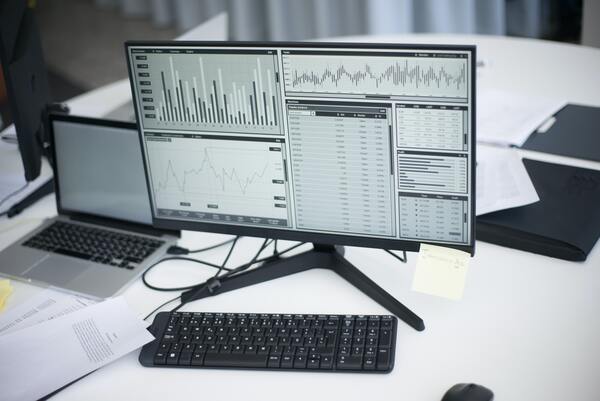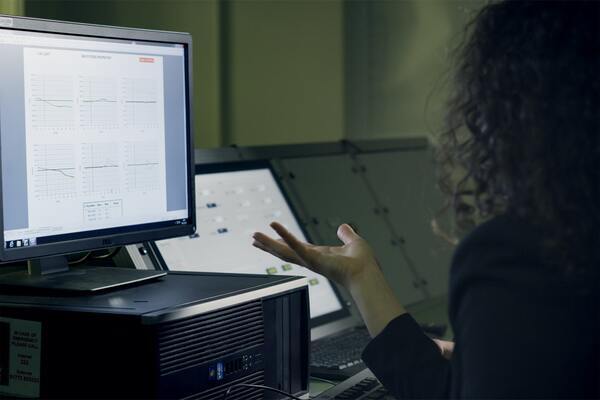By: Jayvee R
2023/06/23
There have been many rapid transformations happening today as far as the accounting system is concerned.
Cloud accounting software systems are changing how businesses operate and how they manage their financial information.
In the same way, online accounting in the Philippines is also growing tremendously.
But there are companies who still do not opt to upgrade to cloud accounting and they are still stuck with their obsolete accounting software.
Find out why it is a must to have cloud accounting software in your business.
While it is true that it is rare to run a business without using cloud accounting software, there are some that are still considering the move.
Like most small business owners, you just have to do more with what you already have, like your on-premise accounting software.
Must you move to cloud accounting? What are the advantages and disadvantages of using cloud accounting software?
If you want to know before making a decision, then read on.
There are disadvantages to everything, and the on-premise accounting software that you may already have is no different.
Be aware that this type of software has disadvantages as compared to online accounting software that is accessed through the cloud.
1. On-premise accounting software is expensive
This type of accounting software that is installed on a computer in the office is quite expensive.
It is sometimes difficult to justify the attendant costs of owning and maintaining it.
When you are still starting out with only a few transactions, investing in this is not practical.
2. Accounting software may have some bugs
There are instances when these tools get infiltrated with bugs.
Although the bugs are minor and may cause discrepancies, they can still lead to certain issues like double entries.
And this will cause a major blow for a company to have these errors.
3. Data may be lost
When the accounting software is installed on the computer, chances are there might be computer problems that would happen, and sometimes all it takes is pushing one erroneous button and all data may be going down the drain.
Losing all that data is frustrating and can affect the performance of the company.
With this, it is essential to create a backup plan in case this happens.
Whereas, with cloud accounting software it is near impossible to lose the data as back-ups are automatic.
4. Learning to use accounting software might be difficult
They say that accounting software is user-friendly, but for newbies, it might take some time to learn how to use it.
There has to be extensive training prior to installation.
For others who are so used to doing things every day, this can be challenging to accept the change and learn something new.
It can also be a problem if there’s not enough support available.
5. Accounting software requires updating that is costly
Costs do not stop at installation of the software on the assigned desktop.
The on-premise software requires significant upgrades and is sometimes costly.
Even minor upgrades can be pretty expensive, and if you have a small budget, this can present a considerable problem.
6. Trying to learn might be a distraction
While it is true that learning the software takes time, too much focus can cause confusion when there are so many things to learn.
This can be a problem if you learn on your own.
There should be enough resources and a budget for training to ensure swift learning.
7. There is a risk of pilferage, theft, and fraud
Compared to having cloud accounting software that is surely a secure place to be for your data, on-premise accounting software has a higher risk of pilferage, theft, and fraud.
Using a hard drive for storage increases the risk of getting malware and viruses when transferring data from, say, an infected usb thumb drive.
And hard drives do crash.
The key here is to make sure that you have data backups available if something happens to your hard drive.
And as far as theft and pilferage go, since there’s little to no paper trail, it is possible that fraudulent activities are discovered a little too late.
8. Access to only one computer is already a potential problem
Having this limitation is a major no-no.
You won’t be able to do anything if there’s a significant problem with your computer.
9. Data entry is mind-numbing and tedious
You will need to enter data and it is such a daunting task.
It is routine and boring as well as time-consuming.
10. Some are not government-compliant
Why use the old accounting software when there is BIR-ready accounting software that can be in sync with all the necessary requirements of the government regarding your financial information and tax filing?
It is a no-brainer not to have one.
On-premise accounting software has drawbacks.
With the given disadvantages, it makes sense for fast-growing businesses to deploy cloud accounting software that is safe, accurate, seamless, scalable, updated, compliant, user-friendly, environment-friendly, centralized, highly accessible, and most of all, BIR-ready accounting software.
Cloud accounting software is here for your business!
Worry no more of the drawbacks and disadvantages.
EasyFS is a Software-as-a-service (SAAS) sales, inventory, and Accounting system designed for Micro, Small, and Medium (MSME) Enterprises.
If you want to manage your business in real-time and in a WFH (Work from Home Setup), EasyFS can provide a turn-key solution to your most common business problems to effectively monitor your sales, check your real-time inventory stock quantity and most importantly the status of your business’s financial health.
On top of that EasyFS is CAS (Computerized Accounting System) compliant and ready for government taxation in the Philippines.
Book a free demo today: https://human-incubator.com/easy-fis/













